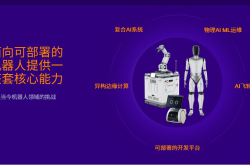Where and How Will the 'Perfect Storm' of Global Stock Markets Play Out?
![]() 08/06 2024
08/06 2024
![]() 570
570
This article is written based on public information and is intended solely for information exchange and does not constitute any investment advice.

Markets may not be defeated by rumors, but rumors often hint at the fear of a certain expected probability in the market.
Yesterday, the first Monday of August, following the panic in the U.S. stock market on the last trading day of last week, the global market fell silent in unison: Japan's Nikkei index (Nikkei 225) experienced two circuit breakers, with a record-high 12.4% decline; South Korea's KOSPI index plunged 10%; the three major European stock indices all opened with losses of over 2%; and U.S. stocks also continued to plummet, with heavyweights like NVIDIA and Apple closing down more than 4% despite opening lower and closing higher.
While the A-share index appears relatively resilient, considering its years of underperformance and the poor sentiment towards individual stocks, it's fair to say that no one can remain unscathed in this widespread market downturn.
Where did the perfect storm of this global stock market crash originate, and how will it unfold?
01
Underlying Logic: On the Brink of Recession
In recent years, a popular sentiment has emerged: avoid grand narratives and focus on individual destinies.
While the latter part of this sentiment is admirable, the former part is a warning sign. Humans form societies, engage in economic activities, and experience economic cycles, and no one can stand apart. The ups and downs of individual destinies are reflections of economic cycles.
One could argue that the depth of understanding of economic cycles and their influence on behavior determines an individual's fate. This is the narrow sense of the saying "choice is greater than effort."
Currently, the most significant grand narrative is the collapse of the U.S. market, the last domino in this global recession.
Regardless of how confident people are that the Stars and Stripes will never fall, a recession is inevitable. It's a natural law, like the rising and setting of the sun. Only through recession can weak currencies be eliminated, generations rise and fall, efficiency increase, and the spark of industrial revolution be ignited, leading to a new round of prosperity.
No matter how policies are patched up, what is meant to happen will happen.
The onset of recession will correspond to a peak in U.S. stocks and expected monetary actions such as interest rate cuts.
The anticipation of recession has now entered a substantial phase, with the "Sahm Rule" nearly triggered.
The Sahm Rule, proposed by former Federal Reserve economist Claudia Sahm in 2019, is an indicator used to predict the start of an economic recession. It states that when the three-month moving average of the national unemployment rate rises by 0.5 percentage points or more from its lowest point in the previous 12 months, the economy is likely in recession.
The rule aims to provide an early warning signal for recessions, potentially faster than traditional indicators. It has accurately predicted the start of every recession since the 1970s.
According to the latest data, the U.S. unemployment rate has surged 0.6% from its low point this year, triggering the Sahm Rule after months of unexpected increases.
However, a single unemployment rate indicator is insufficient to fully explain the inevitability of recession or unilaterally trigger a perfect storm. Notably, many financial institutions continue to dispute the occurrence of recession for various reasons.
These voices are faint, as the market has already begun to vote.
02
Trigger: Mrs. Watanabe
Many phenomena in financial markets are often complex and chaotic, making them difficult to fully explain.
Probability governs the market, and its charm lies in its ability to determine winners and losers through the distribution of benefits. This is also the charm of the market.
Therefore, the revelation of probability is marked by changes in the paradigm of benefit distribution. Besides the Sahm Rule, Mrs. Watanabe is another crucial indicator of a U.S. recession.
Essentially, the U.S. and Japanese economies are highly intertwined, with high liquidity between the two markets, providing ample opportunities for arbitrage for yen-denominated leveraged funds seeking appreciation, known colloquially as "Mrs. Watanabe." As the yen strengthens or weakens, these funds flow in or out, respectively.
In this process, Mrs. Watanabe ceases to be an individual and becomes a pair of interdependent balance sheets.
With the anticipation of a weaker dollar (interest rate cuts), to protect their balance sheets, the yen was the first to raise interest rates, prompting Mrs. Watanabe to rebalance her arbitrage strategies. This significantly increased the cost of leveraged funds in the Japanese stock market, disrupting the inherent balance of the dual arbitrage system. To minimize losses, one end had to be temporarily abandoned, passively triggering significant volatility in Japanese stocks.
This inevitable situation serves as another testament to the possibility of a U.S. recession.
Where the new equilibrium threshold will form in this stock market volatility theoretically depends on the tolerance of leveraged funds during the transition to a bilateral interest rate paradigm and the mutual understanding between the interdependent balance sheets.
Regardless, Mrs. Watanabe's stress response largely indicates the collapse of the recession domino, foreshadowing inevitable turmoil in global capital markets.
03
Accelerant: Warren Buffett Sells Apple
If there's a prophet in this market, it's Warren Buffett.
The latest holdings records show that Buffett has sold half of his Apple stake, and he's also reducing his position in Bank of America, his second-largest holding.
Attitude speaks volumes. The Oracle of Omaha has made no secret of his stance.
It's worth noting that the Nikkei's bull run was significantly fueled by Buffett's investment in Japan's four major trading houses. His understanding of the Japanese and U.S. markets, and even the mechanics of these two countries, is unparalleled.
Whenever significant market changes occur, private jets line up to land in Omaha, Nebraska, seeking guidance from the investment guru. It remains to be seen what the recent flight records show.
The story of Apple represents an era. How can newcomers ascend if this era doesn't end? Logically, Apple has become a paradox: if it represents technological innovation leading to a new Kondratiev wave, the world will remain governed by the old era. If not, it could signal the beginning of a new era – but only if its decline signals the recession of this era itself.
Don't assume that AI-powered smartphones will dominate the next 30 years; Buffett certainly wouldn't.
Buffett believes in "buying a business, not a stock." Therefore, when he takes profits from Apple, the market must be sobered to realize that, at that moment, he no longer favors the company.
At this point, Duan Yongping is troubled. He commented that he didn't know what else to buy if he sold Apple.
The implication is clear: even if we can't yet be optimistic about the future, it's time to be bearish about the past.
04
Fan: Intel and NVIDIA
Intel chose to implode, falling behind in AI: As computing shifted from serial to parallel processing, Intel failed to adapt, resulting in dismal earnings and massive layoffs.
Economic cycles are simply a testament to the rise and fall of talent throughout history.
Intel's decline is unsurprising; rather, it's a stark indicator of the end of a cycle.
Unfortunately, NVIDIA, the rising chip giant, hasn't fully embraced its coronation despite briefly becoming the world's most valuable company. Its power alone hasn't fully opened the door to an AI-driven economic cycle with exponential growth.
Regarding NVIDIA, I'll keep it brief:
Currently, AI lacks a super application scenario, preventing exponential computing power from translating into exponential economic benefits, leading to industry bubbles.
This has objectively led to a plateau in market demand for AI chips after an initial surge.
The fundamental reason for the delay in the release of NVIDIA's Blackwell GPU is that AI chips are approaching the "uneconomical" zone.
In reality, regardless of Huang Renxian's public proclamations of "AI sovereignty," the lack of super application scenarios hinders progress towards a new AI cycle.
Notably, NVIDIA's AI segment has accumulated massive profit-taking positions. Any hindrance can trigger significant price volatility due to trading by those lacking conviction.
For a long time, AI players like NVIDIA have been widely regarded as the key to avoiding a U.S. recession. However, as the saying goes, "Heaven and Earth are impartial; they treat all things as straw dogs." Even the most talented individuals cannot defy the laws of nature.
As the market gradually realizes this, the self-reinforcing nature of recession quickly gathers momentum.
Other factors contributing to this perfect storm include geopolitical risks.
Without growth, the world lacks elegance. The recent escalation of geopolitical risks in the Middle East is essentially driven by economic factors, creating a complex interplay between the two.
In conclusion, if you lack the speculative instincts and information judgment abilities to navigate historical events, observing from afar may be the wiser choice: In the game of probability, guarding wealth is far more likely to succeed than gambling for it.







